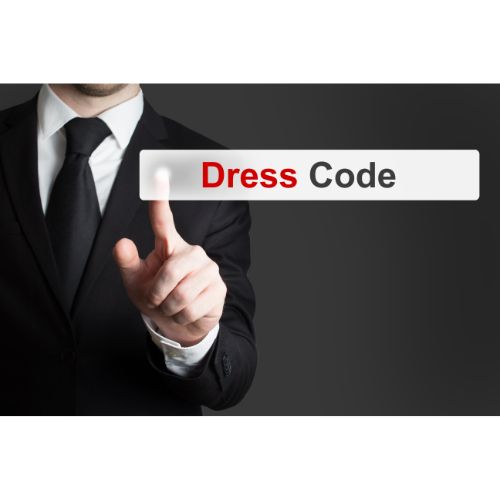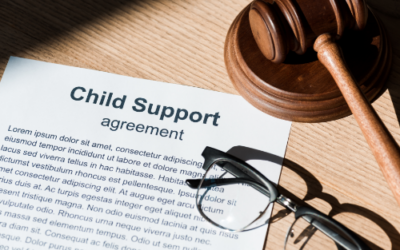No, You Can’t Wear Jeans to Court! Dress Code and Attire Rules to Win Your Case
Let’s chat a bit about courtroom attire.
 This topic comes up due to the high number of folks I’ve seen walk into court dressed inappropriately. Judges and jurors are human and they inject their own biases into decisions involving clients’ character. Humans judge each other based on how they dress. This may see unfair, but thinking your dress or attire does not influence your judge or jury is wishful thinking. Most people will hold in higher regard the person dressed professionally in a solemn place such as a courtroom or church than someone dressed more casual. Your attire may not prove anything about your character or smarts, but in a solemn space such as a courtroom, your attire does say something about your respect for the process. It is the process, the application of the rule of law in the courtroom that sets the courtroom as a place worthy of solemnity, and worthy of proper attire. The client who takes the extra time to give attention to detail and spends the extra energy to see to it they are groomed and dressed appropriately may, not always, but may get a little more grace from the judge or jury hearing their case.
This topic comes up due to the high number of folks I’ve seen walk into court dressed inappropriately. Judges and jurors are human and they inject their own biases into decisions involving clients’ character. Humans judge each other based on how they dress. This may see unfair, but thinking your dress or attire does not influence your judge or jury is wishful thinking. Most people will hold in higher regard the person dressed professionally in a solemn place such as a courtroom or church than someone dressed more casual. Your attire may not prove anything about your character or smarts, but in a solemn space such as a courtroom, your attire does say something about your respect for the process. It is the process, the application of the rule of law in the courtroom that sets the courtroom as a place worthy of solemnity, and worthy of proper attire. The client who takes the extra time to give attention to detail and spends the extra energy to see to it they are groomed and dressed appropriately may, not always, but may get a little more grace from the judge or jury hearing their case.
Judges and jurors are watching what people wear in court.
Judges are always watching. Such as the judge who has to post a “No Pajamas” sign at court to get the attention of litigants too tired to get dressed. Or the judge who refused a man the ability to wear a “Police Lie” t-shirt in court. Or the judge who would not proceed to hold a hearing due to a woman being covered with a religious scarf around her head. Or even the judge who stopped a mother from breastfeeding because she was “not covered up.” Not all of these judges’ positions are justifiable, but the point is judges are human and they will prejudge you for what you’re wearing or not wearing when you are in their courtroom.
Judges, court clerks, bailiffs, and lawyers are used to the attire expected in a court of law (some lawyers still make you wonder however). Many of the general public have no clue about courtroom attire. Some people have never stepped foot in a courtroom and have only seen courtroom scenes on television. Thus oftentimes the client who walks into a courtroom in jeans or t-shirts may just not know that jeans and tees are not court-appropriate attire. Lawyers should do a better job educating their clients about what to wear to court. Clients should do a better job planning their attire and remembering how that one dresses says a lot about them, especially to a judge judging their case.
So what should you wear to court?
Appropriate attire that will never go wrong for court include for men: suits, jackets, slacks, collared shirts, and ties. For women, suit sets, dresses, skirts (preferably no more than two inches above the knee), long pants, blouses, sweaters, and casual dress shirts should work. For both, clean shoes is a must as they say a lot about you. Accessories such as nice handbags for women and belts for men certainly help (yes guys, belts!). Somethings to avoid are hats, glasses, and bluetooth earpieces in the courtroom; they may send the wrong message, or are usually not allowed. Women attending court should check out Houston Attorney Courtney White‘s Courthouse Couture fashion blog for great tips on getting dressed for court. For the men, it’s a bit less complicated, since a nice suit or crisp shirt and tie generally does the trick. Both sides should try not to overdo it however. Overwhelmingly strong cologne on a man or stiletto heels (or anything screaming dancer material) on a women tends to be a sign of overdoing it!
What’s the craziest attire you’ve seen in court? Would you go to court dressed in pajama pants? Let me know below.





